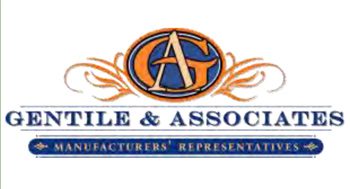
Seeking a licensed, insured CLCA member contractor? Search for CLCA members by company name, city or area.

The California Landscape Contractors Association invites you to join the ranks of its industry professionals.

To renew your membership, please log in to renew your membership, or join CLCA if you already have a log in.










Thanks to the generous support of our sponsors, our Kern County chapter is able to provide informative and entertaining events for our members throughout the year. Please consider sponsoring our chapter in 2025-2026 and beyond so that we can continue to support professionals in the landscaping industry and maintain the fine programming standards our local community expects.


CLCA serves and protects the interests of its members, promotes professionalism, and advances public awareness of the landscape industry. To that end, we’re here to answer any of your questions.
You should ask any contractor you consider hiring for advice on types of irrigation controllers, plant sizes, and grounds preparation that will enhance your property for years to come. To ensure a quality job, you should discuss with your contractor any possible inconvenience your landscape project will create. For instance, the patio furniture may have to be covered, your pet may have to be boarded, and vehicles may have to be moved. Make necessary arrangements before work begins to prevent possible delays or other problems.
Regardless of the size of the landscape project you’re contemplating, its success may well depend on the hiring of a professional landscape and irrigation contractor who is licensed by the state. CLCA provides you with a few guidelines here to help you plan accordingly.
One of the best ways to select a contractor is through recommendations from former customers who have recently contracted for landscape and irrigation work. Another source for referrals is the California Landscape Contractors Association.
Regardless of recommendations, before hiring a contractor, you should:
It’s a good idea to obtain more than one bid so that the prices and work offered can be compared. Request all bids in writing. Remember that the lowest price may not always be the best. The contractor may have made a mistake or may not have included all the work quoted by competitors. Be certain that each bid lists all the preparatory and finish work that the contractor has suggested, as well as the amounts and types of soil amendments, and brand of sprinkler equipment.
You should be cautious about contractors who ask for payments prior to beginning the job. Most landscape and irrigation contractors do not require a down payment; full payment is usually requested on completion of the job or in installments if the job will take a period of weeks. If a contractor does ask for a down payment, remember that on home improvement projects (including landscaping) the legal limit which may be asked is ten percent of the full price of the job (excluding finance charges) or $1,000, whichever is less.
If your contract provides a payment and performance bond covering your total job, or if a joint control company approved by the Register of Contractors is used, the cap on the down payment does not apply. Be certain that any down payment or schedule of installment payments is specified in exact dollars and cents in your contract. Make payments by check or money order, not cash.
Sometimes, in spite of all the precautions taken, problems will occur. If this happens, first contact your contractor. Usually problems can be worked out and corrections will be made willingly. If not, file a written complaint with the Contractors State License Board. The Board’s staff assists consumers with questions about contractors and will investigate all valid complaints. For more information on the Contractors State License Board or the license status of a contractor, call: (800) 321-CSLB or consult your local telephone directory.
A landscape contractor is required to have a license bond posted with the Contractors State License Board. However, this bond does not ensure that your job will be completed.
It’s a good idea to ask your contractor to provide you with a “payment and performance” bond that covers the full price of your job. Although nothing can totally ensure your job will be completed, a payment and performance bond provides a financial guarantee against mechanics’ liens (which can be filed against your property by subcontractors or material suppliers should your contractor fail to pay them).
A payment and performance bond also provides a source of funds for completing the job in the event your contractor does not do so. The bond should be for the full amount of your job, as the bonding company is only liable up to the amount of the bond.
A payment and performance bond will usually add one to five percent to the total contract price, but it can be well worth the cost, particularly on large projects.
A contractor must be financially solvent and have a proven track record to obtain a payment and performance bond. A contractor who is new to the business or who has a small operation may have difficulty in obtaining such a bond.
If your contractor is unable to provide you with a payment and performance bond, or if you want to use an additional method of security, you might consider using a joint control company. A joint control company is an escrow company that specializes in construction. Instead of paying the contractor directly, you pay the joint control company, which in turn pays the contractor(s), material suppliers, etc. A good company will inspect the project before making payments and provide a guarantee against valid mechanics’ liens. In looking for a joint control company, check with your lender or contractor for recommendations.